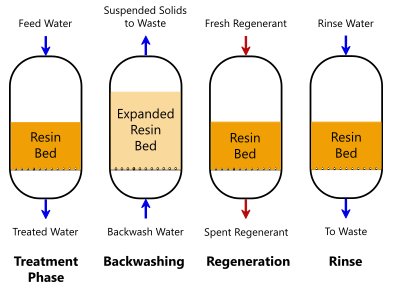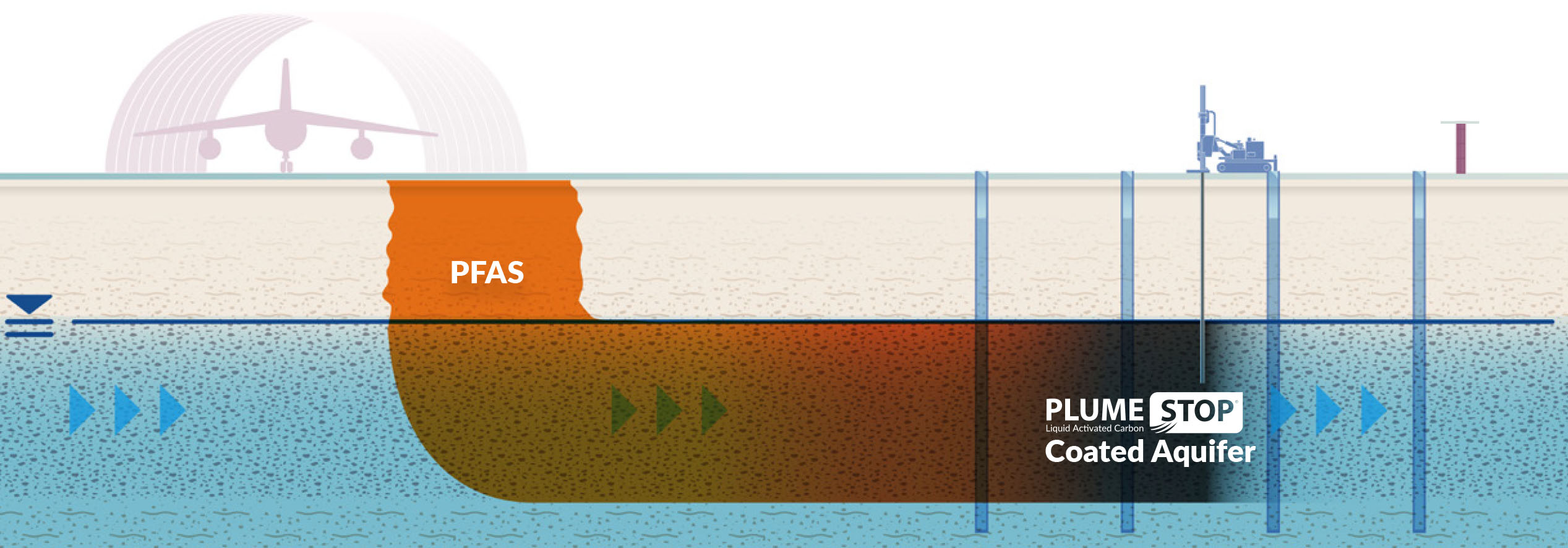How PFAS Therapy Ensures Tidy and Sustainable Water
The presence of PFAS, generally recognized as "for life chemicals," poses significant difficulties to water top quality and public health and wellness. The implications of these therapies prolong past immediate wellness advantages; they elevate essential concerns about long-lasting water administration techniques that must be dealt with to make certain a durable future.

Comprehending PFAS Contamination
PFAS, or per- and polyfluoroalkyl materials, have actually become a substantial ecological concern because of their prevalent occurrence and determination in the setting. These artificial chemicals have actually been utilized in various commercial applications and customer products, consisting of non-stick cookware, water-proof clothes, and food packaging, as a result of their one-of-a-kind homes such as water and oil resistance.
The contamination of dirt and water sources by PFAS takes place mostly with commercial discharges, firefighting foam usage, and leaching from landfills. pfas management. As soon as released, these substances are immune to destruction, leading to their build-up in the setting. This perseverance raises vital issues, as PFAS can take a trip long distances with groundwater and surface area water supply, affecting alcohol consumption water products and environments

Health And Wellness Threats of PFAS
The determination of PFAS in the setting raises considerable health worries for individuals revealed to these substances. Referred to as "for life chemicals," PFAS do not break down quickly and can accumulate in human bodies over time. Study has connected PFAS direct exposure to various damaging health results, consisting of body immune system dysfunction, liver damage, and increased threat of particular cancers cells - pfas management. Especially, studies have shown elevated cholesterol degrees and prospective influence on reproductive and developing health, specifically in pregnant people and infants.
The universality of PFAS in consumer products, such as non-stick kitchenware, water-repellent materials, and food packaging, more magnifies the risk of direct exposure. Consuming alcohol water polluted with PFAS is a significant concern, as these chemicals can seep into groundwater sources. Vulnerable populaces, including youngsters and those living near commercial websites, may deal with heightened dangers due to their creating systems and possible for higher direct exposure degrees.
As awareness of these health and wellness risks remains to grow, governing agencies are beginning to establish guidelines for PFAS degrees in alcohol consumption pfas waste management water. Public health efforts are necessary to minimize exposure and safeguard areas from the long-lasting effects of these unsafe substances.

Cutting-edge Therapy Technologies
How can we efficiently deal with the difficulties presented by PFAS contamination in water sources? Innovative therapy innovations are becoming essential services in the quest for tidy water. These methods concentrate on the removal or devastation of per- and polyfluoroalkyl substances (PFAS), which are infamous for their determination in the environment.
One encouraging method is adsorption making use of sophisticated products, such as activated carbon and ion exchange materials. These materials have actually revealed efficiency in catching PFAS particles from water. One more significant modern technology is membrane filtration, which utilizes nanofiltration and turn around osmosis to different contaminants at the molecular degree, thus supplying an obstacle versus PFAS.
Additionally, advanced oxidation processes (AOPs) utilize solid oxidants to damage down PFAS substances into harmless byproducts. This method is especially efficient for dealing with very polluted water resources. Bioremediation strategies, using specific microorganisms, are likewise being discovered to weaken PFAS.
As study proceeds, hybrid systems that combine multiple innovations might supply boosted efficiency, addressing the intricacies of PFAS contamination. The growth and execution of these innovative therapy technologies are important steps toward making sure the safety and security and sustainability of our water sources.
Benefits of Reliable PFAS Treatment
Successfully treating PFAS contamination in water sources dramatically enhances public health and wellness and environmental safety. PFAS, frequently described as "for life chemicals," are resistant to destruction and can collect in the human body, bring about major health threats such as cancer, liver damage, and body immune system disorder. By applying reliable therapy techniques, communities can minimize exposure to these dangerous materials, inevitably boosting the health end results of their populaces.
Additionally, effective PFAS treatment adds to the preservation of local environments. Polluted water can detrimentally affect aquatic life and disrupt the fragile equilibrium of regional habitats. By making sure clean water, treatment procedures shield biodiversity and keep environmental honesty.
Furthermore, efficient PFAS removal can cultivate public self-confidence in water top quality. When neighborhoods are assured that their alcohol consumption water is devoid of dangerous impurities, it promotes a sense of security and wellness. This count on is important for area engagement and assistance for recurring water administration initiatives.
Future of Water Sustainability
Amidst growing issues concerning water quality and shortage, the future of water sustainability pivots on ingenious approaches and collective initiatives. As communities encounter the impending threats of impurities like PFAS, the advancement of sophisticated therapy modern technologies is essential. These innovations not only concentrate on the removal of hazardous compounds however additionally advertise the reuse and recycling of water, therefore decreasing general demand.
Furthermore, efficient water governance plays an important role in guaranteeing sustainable techniques. Policymakers must integrate clinical research with regulative frameworks to develop clear guidelines for water usage and therapy. Stakeholder interaction, including neighborhood communities and sectors, promotes a sense of common obligation and encourages lasting methods throughout different sectors.
Financial investment in facilities is also critical; upgrading aging systems to include modern-day filtration and purification approaches can considerably boost water quality. Embracing eco-friendly modern technologies, such as natural filtration systems, can offer green services.
Eventually, the future of water sustainability hinges on a holistic strategy that combines modern technology, plan, and area participation. By focusing on these elements, we can safeguard our water resources for generations ahead, making sure tidy and lasting water for all.
Verdict
In conclusion, the efficient therapy of PFAS is vital for ensuring clean and lasting water. Inevitably, durable PFAS therapy approaches contribute to long-lasting durability in water monitoring, cultivating public trust in water quality and promoting sustainable practices.
Comments on “The Advancements in PFAS Waste Management Methods for Environmental Protection”